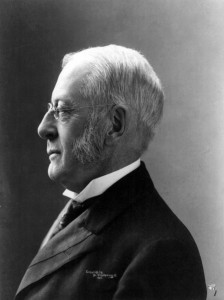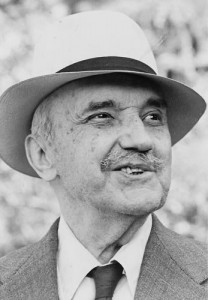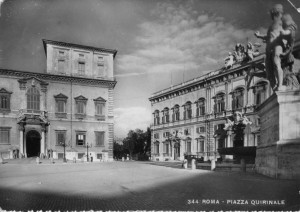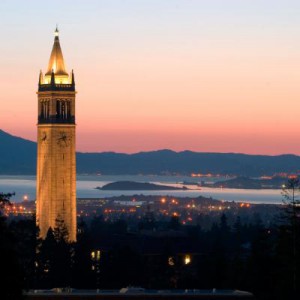
To Boylston Adams Beal
Hotel Bristol
Rome. February 15, 1939
Thank you very much for your extraordinarily kind, sympathetic, and clear-sighted letter about Howgate’s book. Naturally I feel at least as much as you do the lack of any inward understanding. Perhaps the way one man feels the world and his own interests is not communicable beyond a very few friends and contemporaries who lived in the same places, and thought in the same way. We belong to the 1880’s and 1890’s, and that, for the men of today, is a long time ago. I have been reading a book of E. Beresford Chancellor’s about the Regency, and early Victorian times in London; it is thoroughly well informed and good-natured, yet I am sure Beau Brummel and George IV and the rest would not recognize one motive or one sentiment of their own in these portraits. And if a great novelist, not a mere retailer of anecdotes like Chancellor, took up the task, of course he would merely create plausible (or as they say, living) characters of his own, entirely unlike, inwardly, what the real people had been. This is so patent to a reader of history or philosophy, that I often wonder why the ancients cared so much about fame, and talked as if it could rescue them from death and oblivion. It rescues only their names, and some reports about events in their lives; but the quality of life, as they knew it, can’t be recreated. . . . he [Howgate] doesn.t work from the inside outwards but from the outside inwards, so that he misses the life of the whole and sometimes, as in my sonnets, finds two ladies who were not there. As you say again, he has little sense of humour, little dramatic sense. He is a professor of English, I believe; certainly not a deep philosopher, although competent in a commonplace way; and he studies my style and its defects very earnestly and judiciously, revealing things to me that sometimes I had never perceived. You know that I don.t regard myself as a poet in the English sense of the word: but I have always written verse easily and with great gusto, Latin fashion, and one can put into that kind of rhetoric very genuine thoughts and feelings. But here again, they are imagined thoughts and feelings, spontaneous fictions, not reports of convictions or facts previously arrived at. So that the merry, the artistic, side of such poetry is missed by a critic who expects personal self-revelations or religious conclusions only, to help him write the biography of his author.
George Sturgis, who oddly enough was a friend of Swelly Bangs, had written to me of his death.4 I wonder if he retained his heartiness and jovial aristocratic tolerance for mankind, through so many later years and so much contact with the dominant currents in the world. Hardly possible. But he was a jolly young man, and wise in his mind and temper in those early days. I shall never forget the evenings when he and Bob Barlow took me to supper at the Zeta Psi, in the old house in Church Street, where the dining-room was like the cabin of some old frigate, and the songs and stories were worthy of Captain Marryat and his crew. This, and other glimpses of mannish society which I had in those days, helped to enlarge my sympathies; and something may have filtered through into my novel.
I wish you could turn up here. The depression and dismay which seems to fill the rest of the world are not to be felt here. I don’t know what difficulties there may be beneath the surface; but to a casual observer like me everything seems prospering and joyful; old things being pulled down–ugly old things–and new things built, which if not beautiful are at least frank, clean, large, and solid. I was never happier than I am here and now. The Spanish cloud seems to be receding rapidly. My friends in Spain are most enthusiastic, heralding a new dawn, and full of courage and confidence. One of my sister’s step-grandsons has been killed; but several others in the army are doing well, although of course everybody has suffered financial loss and great anxiety. But we are not afraid of the Jews or the French or even the Eng-lish, who like America seem to rule the world but are having hopeless troubles at home, even in Palestine!
From The Letters of George Santayana: Book Six, 1937-1940. Cambridge, MA: The MIT Press, 2004.
Location of manuscript: The Houghton Library, Harvard University, Cambridge MA
 To Charles William Eliot
To Charles William Eliot



